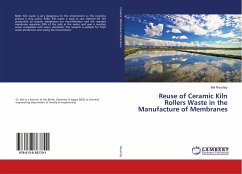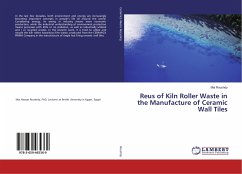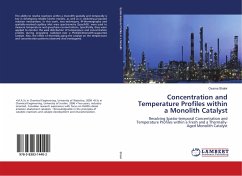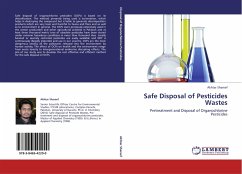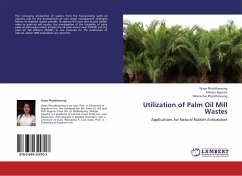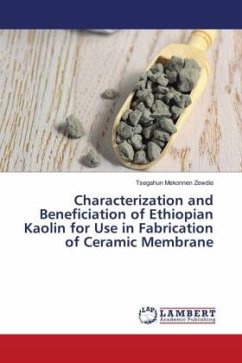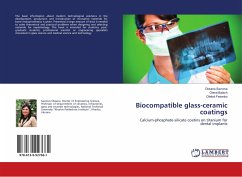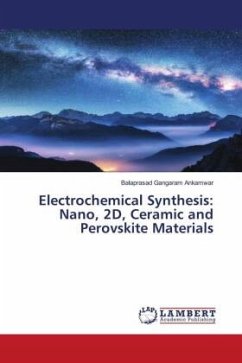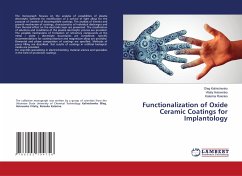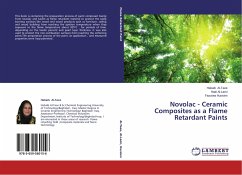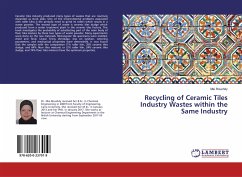
Recycling of Ceramic Tiles Industry Wastes within the Same Industry
Versandkostenfrei!
Versandfertig in 6-10 Tagen
27,99 €
inkl. MwSt.

PAYBACK Punkte
14 °P sammeln!
Ceramic tiles industry produced many types of wastes that are routinely discarded as stock piles. One of the environmental problems associated with roller kilns is the periodic need to grind its rollers which results in a waste powder. The second type of waste is ceramic tiles sludge which produced from a water treatment plant in the ceramic tiles factory. This book investigates the probability of substituting part of the main body of floor tiles mixture by these two types of waste powder. Many experiments were done on the raw materials. Rectangular tile specimens were molded, dried and fired....
Ceramic tiles industry produced many types of wastes that are routinely discarded as stock piles. One of the environmental problems associated with roller kilns is the periodic need to grind its rollers which results in a waste powder. The second type of waste is ceramic tiles sludge which produced from a water treatment plant in the ceramic tiles factory. This book investigates the probability of substituting part of the main body of floor tiles mixture by these two types of waste powder. Many experiments were done on the raw materials. Rectangular tile specimens were molded, dried and fired. Linear firing shrinkage, loss on ignition, sintering parameters, and mechanical properties were determined. It was found that the samples with the composition (1% roller kiln, 35% ceramic tiles sludge, and 64% floor tiles mixture) or (2% roller kiln, 24% ceramic tiles sludge, and 74% floor tiles mixture) have the optimum properties.



